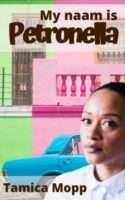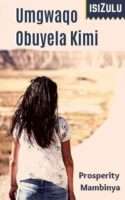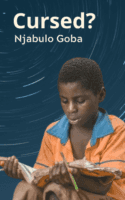Jobs, jobs, jobs – every politician’s promise, and yet something so hard for young people to get. As I Will Find My Way reminds us, this is even more so since corona hit the economy. Look what the official South African Statistics Department says:
The youth aged 15–24 years are the most vulnerable in the South African labour market as the unemployment rate among this age group was 59,0% in the 1st quarter of 2020. Read more here.
What’s the value of a job? Stupid question you may think: it brings in money, and everyone needs money.
But not so fast: a job is much more than rands to spend. Think about what it means to be unemployed, month after month, stretching into year after year. Many of you school-leavers reading this probably know this situation all too well.
Unemployment means hours and dragging hours of time to fill, with no money. Boredom. The more you have nothing to do, the more demotivated you become to do anything. It means lack of respect and status in one’s family and community. Self-doubt. It can cause young people to find excitement in way too much partying and drugging. It can even lead to clinical depression, and feeling hopeless about the future. Broken dreams.
But, as Mila shows us in I Will Find My Way, first, there is a lot you can do to make yourself more employable. And second, there are many ways to earn some money while you train for a job, or while you are looking. Third, and very important, being energetic, proactive and busy like Mila will prevent boredom and hopelessness, all the while boosting your skills and CV. (Other ways to do this are by volunteering and finding internships. See links to useful articles on these kinds of topics at the end of these Talking Points.)
The story begins with Mila ‘s realistic fears: “Mila was anxious. The competition was going to be too high, especially as she was only armed with a mere Matric certificate and no experience whatsoever.”
As the story progresses, we see the resources Mila uses to build up her job-seeking profile from a ‘mere Matric certificate’.
She took good advantage of supportive, working family. Her sister and brother-in-law had advice and equipment, such as computers, internet and printer.
And if you aren’t able to write your CV online, and send it off from home, note that schools, youth centres, youth-centred NPO programmes, churches and libraries often have facilities you can use, plus staff with advice. Actively seek them out where you live, or online. FunDza has loads of help with writing a CV, a covering letter and with job seeking. See the links at the end.
Mila soon learns that a Matric certificate is rarely enough to get a job. Even low-paid, entry-level jobs like child-minding and being a security guard require training these days. (But the training is short and inexpensive, and once you have a job like this, it can be a stepping stone to more.)
Then Mila is out of the running for the most promising job because she must have a driving licence. Getting this needs more money, and use of a car, but it’s extremely valuable on a CV. She takes advantage of family resources again, to learn to drive. However, anyone can at least begin the process, by passing their learner’s licence. This part is cheap and it shows you are go-getting and forward thinking.
Something Mila is sensible about is presenting herself. Look how she dresses for the interview at a child-minding agency: ‘As she pulled on her black court shoes, Mila wondered what qualifications they needed. Going to the mirror, she decided she looked great in her straight-cut, black skirt with a plain white blouse. She tied her hair neatly in a bun as usual.’
But the story soon shows that Mila is wasting her time. She had not thought through what is needed to be an employable child minder, or the questions she was likely to be asked. It’s one thing to mind kids back home, with your gogo and neighbourhood as back up. But in town? The other woman waiting gives a great example of the sort of question one gets in an interview:
‘“Lets say you are watching my child, and I am at work and you are the only one in the house. The child starts choking. What would be the first thing to do?”
The lady smiles a rather wicked smile because Mila just looked at her blankly. She was clueless.
Later Viola confesses: “I did not know myself that they will need you to have a First Aid Certificate!”
But note, however, that on a CV and in an interview, Mila (and you) could use ‘life experience’ and ‘personal characteristics’ to enhance employability. You could say something like this: “I am very responsible, mature and trustworthy so I was often used as a baby-sitter in my home community. Plus I alone cared for my mother after she had a stroke.”
What could you add to your CV along these lines? Have you cared for younger siblings, a home, or a sick or elderly relative? Can you cook well, or run a local soccer or netball club, or drama or dance group?
In the main plot of I Will Find My Way Mila escapes from an evil job scam – one that we see in real life news stories all too often. How did it work?
No sooner is she off the bus than she is approached by handsome, smooth-talking Monza. He is specifically there on the lookout for naive girls like her; girls who often come from rural places and are overwhelmed by the city. Mila is wary, and no fool, not trusting him. And yet, after several weeks of job-seeking failure, she’s desperate and feeling low. She gives in to Monza, who has flattered and flirted with her. He appealed to her human need to be admired. Fortunately, she escapes the trap and even gets Monza arrested for trafficking in girls, no doubt to be used for sex.
The lesson? Always bear in mind: If it sounds too good to be true, it probably is. In 99.99 per cent of cases good money does not come without training and years of hard work. This applies to jobs, to ‘quick return’ investments, and to fake religious leaders’ promises. Instant wealth is a lotto thing – and your chances of that are 1 in millions and millions.
And btw, a reminder: never ever go off alone with a man you barely know. Especially not one offering you a ‘modelling’ job!
In the sub-plot, all the while she is looking for a formal job, Mila is displaying something very valuable: entrepreneurship. She uses her sister’s facilities and an opportunity to make something to sell. But she doesn’t just bake. Look what she adds to her product and presentation:
“Mila had baked different flavours like vanilla, chocolate mint, and bran. … Everyone was getting ready for the event and she put on her long, flowing, traditional, red and black skirt called umbhaco and wrapped around her doek decorated with colourful beads. She was one proud village girl, and never minded being teased as uNolali.”
She goes even further, seizing another opportunity. Mila is confident of her singing and she knows that the audience of older people at the school farewell function will like her outfit and the song. She has just the right offering. Look at her charming introduction:
“My name is Mila and I am from a beautiful, rural village along the Keiskamma River. Mr Soli is my brother-in-law. He has told me only beautiful things about the principal who he adored so much all these years: Mama Sandlana. So the song I am going to sing is a happy song, a song of joy, and is called Umama.”
This school event shows the power of networking and word of mouth: from it more opportunities flow. Plus, imagine how you would stand out from the rest if you have something like this on your CV, and can say in an interview:
“While I’m looking for formal employment I bake and sell a variety of high-quality muffins, and I perform traditional songs at events. I’m a good singer.”
Believe me, the interviewer is hearing and believing: “I am a go-getting, creative, confident, hard worker who will probably pick up the skills for this job easily.”
As the story ends, we have no doubt that Mila is going to make a career for herself, be an independent money earner. She is enhancing her employability all the time. Go her!
Here are links to helpful resources on FunDza:
Why is it so hard to find a job and what to do about it.
*****
Tell us: Did you find these Talking Points helpful?






